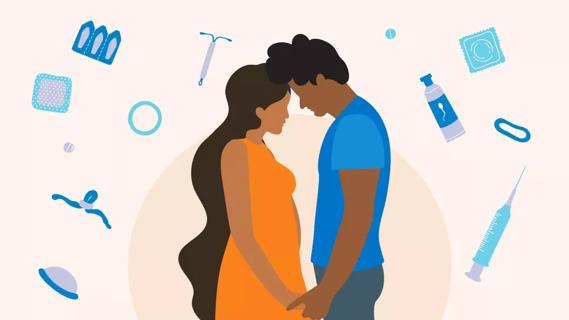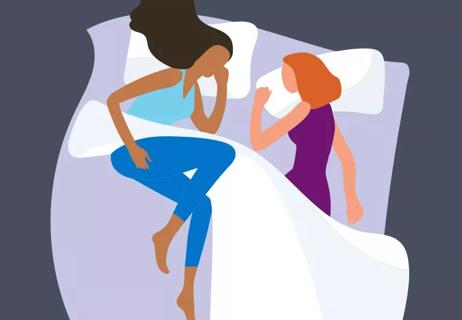Premenopausal women now have an option that can help with their lack of sexual desire

Sometimes you’re in the mood to hit the sheets with your partner and other times it’s the last thing you want to do. But if you suffer from a condition called hypoactive sexual desire disorder (HSDD), you may experience not wanting to get frisky more often than not.
Advertisement
Cleveland Clinic is a non-profit academic medical center. Advertising on our site helps support our mission. We do not endorse non-Cleveland Clinic products or services. Policy
HSDD is the most common sexual disorder and premenopausal women with this diagnosis have experienced a loss or decrease in sexual desire, says women’s health expert Holly L. Thacker, MD.
With HSDD, your lack of sexual desire isn’t due to another medical or psychiatric condition, problems within the relationship or the effects of a medication or other drug. This frustrating issue can cause stress between you and your partner. Just when you think there’s nothing available to help amp up your sex drive, think again.
Disguised as a little pink pill, flibanserin (Addyi®) is used only to treat HSDD. But is this pink pill for you?
If you’re merely looking for something to put you in the mood, the answer is no.
“People shouldn’t confuse the drug with an aphrodisiac because it’s not a drug to increase libido,” says Dr. Thacker. “Flibanserin treats hypoactive sexual desire disorder in premenopausal women and restores sexual desire back to the woman’s previous baseline. It’s not an aphrodisiac.”
The drug works by changing the balance of certain brain neurotransmitters like dopamine and serotonin, which rule over your libido. Once those neurotransmitters are unblocked, your libido can start ramping up again.
Advertisement
“Flibanserin provides an additional, helpful option for women across the country who experience sexual dysfunction,” says Dr. Thacker.
In clinical trials of flibanserin, women experienced two to three “satisfying sexual events” per month before joining the study. Those who took flibanserin reported an average of 0.5 to 1.0 additional satisfying sexual events per month, compared to women given a placebo, according to an FDA analysis.
“The medication has been studied in 11,000 women and it does improve sexual function in women who have certain sexual problems,” she says. “It doesn’t treat all sexual dysfunction and it won’t help all women with sexual problems, but it will have a role in the therapy.”
Overall, one study reported that flibanserin is a well-tolerated and effective treatment that decreases distress and helps bring back sexual desire for women who suffer from HSDD.
Another option for HSDD is bremalanotide (Vyleesi®). This self-administered therapy works by injecting the drug into your thigh or abdomen, which takes about 45 minutes to work and lasts about 12 to 16 hours. Be sure to consult your doctor about if this therapy is best for you.
As with all medications, there are possible side effects to keep in mind.
According to the FDA, flibanserin, which you must take every day, can cause severe low blood pressure and loss of consciousness. These risks are increased and more severe when patients drink alcohol or take the drug with certain medicines that interfere with the breakdown of flibanserin in the body.
The FDA also reported several concerning cases of women passing out when drinking alcohol and taking the pill, too.
“Patients and their doctors will need to weigh the benefits against the risks,” says Dr. Thacker. “Just like with any medication, adult women, in conjunction with their doctor, can make an informed decision about whether this is an appropriate therapy for them.”
Advertisement
Learn more about our editorial process.
Advertisement

Arousal without orgasm can be uncomfortable, but it’s no reason to pressure sexual interactions

Some foods are thought to rev up your sex drive, despite lack of scientific evidence

If anxiety is keeping you from having the sex life you want, communication, education and therapy can help

Anorgasmia is a fairly common concern with a wide range of physical and psychological causes

Your sexual history directly influences your physical, mental and emotional health in a multitude of ways

‘Safer sex’ means STI prevention, avoiding unintended pregnancies and psychologically safe practices for everyone

Medications and therapy can help get your groove back

It’s perfectly normal for gas pockets to ‘evacuate’ during the motions of sex

Start having sex about 72 hours before ovulation, then at least every other day during your fertile window

Attachment theory suggests that your earliest relationships shape connections throughout your life

It isn’t a recognized mental health disorder, but research shows that problematic social media use can negatively affect your mental health, self-esteem and sleep